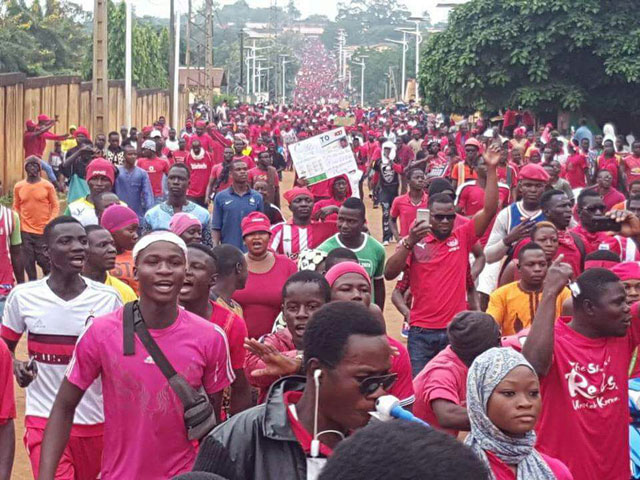
Lome, Togo | AFP | Togo’s opposition stayed away from parliament on Tuesday, blocking the passage of the government’s bill for political reform and forcing a referendum.
The bill was published last week on the eve of protests calling for a revision of the constitution that developed into demands for President Faure Gnassingbe to step down.
A four-fifths majority was needed for it to be approved but the opposition no-show meant it only secured 62 out of 91 votes, with one abstention.
Eric Dupuy, spokesman for the main opposition National Alliance for Change (ANC) party, called the National Assembly session a “sham”.
As he ended proceedings, assembly president Dama Dramani said: “For want of this majority, the bill, passed with a two-thirds majority… is subject to a referendum.
“The people will therefore have their say.”
Government minister Payadowa Boukpessi called the parliamentary vote “democratic” and said the referendum would be held “in the coming months”, without specifying a date.
Only 57 deputies were present for the extraordinary hearing, 56 of them from Gnassingbe’s Union for the Republic (UNIR) party. Six others voted by proxy.
The bill involves changing the constitution to limit a president to a maximum of two five-year terms and the introduction of a two-round voting system.
Opposition MPs want a return to the 1992 constitution, which provided for term limits but was changed by Gnassingbe’s father, Gnassingbe Eyadema, when he was in power.
They are angry the measures will not be retroactive and that the clause stating that “no one can serve more than two terms” has been taken out.
That means the current president, who has been in power since Eyadema’s death in 2005, could contest the next election in 2020 and the one after that in 2025.
Renewed protests have been called for on Wednesday and Thursday against what opposition leader Jean-Pierre Fabre called “the monstrous machine that has been crushing Togo’s people for more than 50 years”.
He said there would be “no let-up” as long as Gnassingbe remains in power.
UNIR has also planned marches on the same day.
Comi Toulabor, head of research at the Institute of Political Studies in Bordeaux, called the ruling party action “a strategy to disrupt the opposition protest”.
“It’s very amateurish but it shows the party isn’t ready to give way,” he told AFP, calling the situation “explosive”.
Unlike other West African nations, Togo has resisted public pressure to introduce term limits.
Gnassingbe, whose family has been in power since 1967, has now won three elections, the results of which have been contested by the opposition.
 The Independent Uganda: You get the Truth we Pay the Price
The Independent Uganda: You get the Truth we Pay the Price





